Premier Ford can’t use the notwithstanding clause to get around the legal challenge brought by Greenpeace and Ecojustice
Three hours after a judge granted an urgent hearing for Greenpeace’s lawsuit over the assault on the Ontario’s climate law, the Ford government blinked.
In a small but significant victory for democracy as something more than voting once every four years, the PC government posted their proposed climate legislation for public comment on the Environmental Bill of Rights registry. Now Ontario residents can have a say about the province’s new climate plan, or lack thereof.
Ford didn’t want to hear what you think about his anti-climate legislation.
But we have the right to be heard on decisions that affect the environment. Let’s use that right. Have YOUR say >> https://t.co/HnnBdDSknr #ActOnClimate #onpoli #FordNation pic.twitter.com/OqMNnfZj0H
— Greenpeace Canada (@GreenpeaceCA) September 20, 2018
To date, Premier Doug Ford has adopted a Trump-inspired shock and awe approach to government where he charges forward on multiple fronts to try to implement changes before anyone can read the fine print. This kind of policy-by-press-release may get them the headlines they want, but it makes for lousy laws.
This is clearest in the use of the notwithstanding clause to overrule a court decision that found Ford was free to cut the size of Toronto’s city council, he just couldn’t do it in the middle of an election. He justified this extraordinary action – bypassing Canada’s Charter of Rights and Freedoms – on the grounds that he’s the boss and if you don’t like it, then vote him out next election day (although he had no such qualms about asking the courts to overrule the carbon pricing policy of the duly-elected federal government).
A healthy democracy, on the other hand, welcomes citizen participation in decision-making every day, not just every four years.
Fortunately, our rights aren’t wholly reliant on the premier’s good will. Ford can’t use the notwithstanding clause to get around the legal challenge brought by Greenpeace and Ecojustice because it is based on the rights granted under the province’s own Environmental Bill of Rights (EBR), not the Charter.
Over the last 25 years, these rights have been respected by governments from all three parties. The EBR recognizes that while it’s primarily the Ontario government’s job to protect the natural environment, Ontarians have the right to participate in – and hold the government accountable for – decisions that significantly affect the environment.
To quote Gord Downie, who personally used the protections in the EBR to defend the earth he loved:
“This is our air and our water, these things belong to us. Every licence to pollute, every environmental impact, must be considered carefully and publicly. These are our environmental rights, rights as important as any others, rights that must be respected.”– Gord Downie
We launched our lawsuit to defend those rights as the Ford government tries to ram through its wholesale revision of Ontario’s laws for combating climate change. We argue that the Ford government unlawfully failed to provide for public consultation on both the regulation that ended Ontario’s cap-and-trade program and on Bill 4, the Cap and Trade Cancellation Act, 2018, that is currently before the legislature. The case also asks the Court to quash the regulation.
So it was significant that the government, perhaps reading the writing on the wall and wanting to avoid another loss in court, put Bill 4 out for a 30-day consultation immediately after we were granted an early court date. The government has also promised the Court that they won’t pass Bill 4 before the public consultation process is complete.
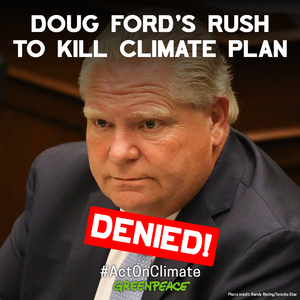
This pause will allow for greater scrutiny of a bill that proposes to rip up the current legislative regime for addressing climate crisis without anything to replace it. Bill 4 eliminates the cap-and- trade system and thus the programs funded by this price on pollution that helped Ontario households and businesses be part of the low-carbon economy. Equally concerning, it also removes the legislated greenhouse gas reduction targets that tell businesses where our economy is going.
This year’s more intense wildfires, flash floods and hurricanes are sending a clear message: failing to act on climate change already has an enormous cost. Those costs are only going to go higher, so if the Ford government doesn’t want to use carbon pricing, then they need to tell Ontarians what they will do instead to address the climate crisis.
At a minimum, Ontario’s new climate plan should be consistent with meeting the goal set out in the Paris climate agreement of keeping warming well below 2 degrees Celsius. That will require building more efficient homes and offices that use less energy and thus cut energy costs. It means better public transit and switching to vehicles powered by renewable energy. These kinds of measures will create good, green jobs in the economy of the future.
This post was originally published on Huffpost on 17 September 2018
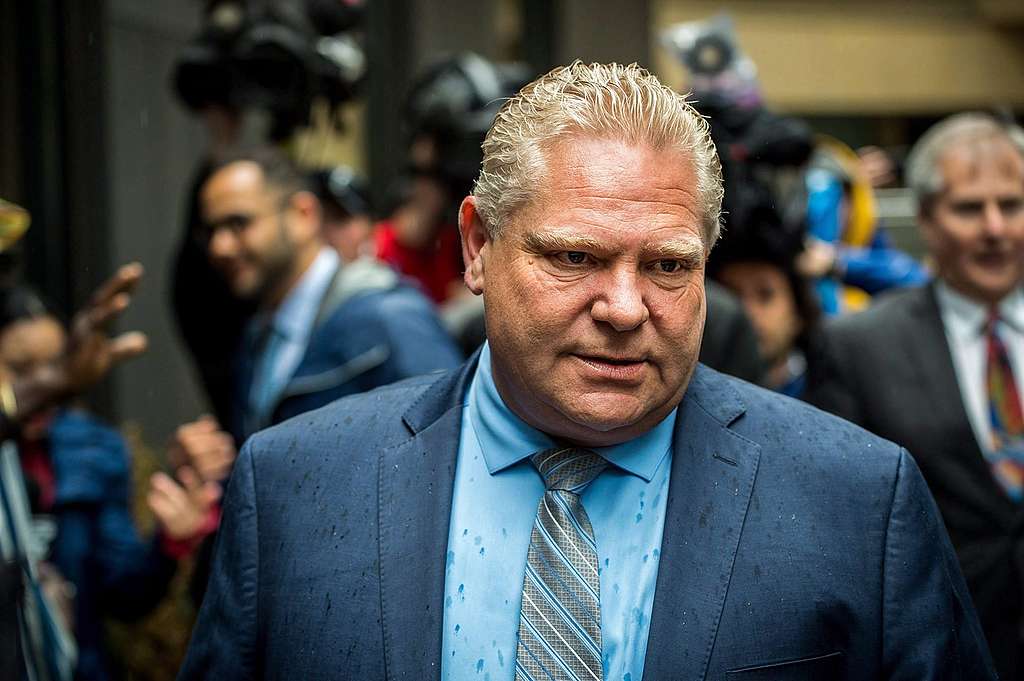

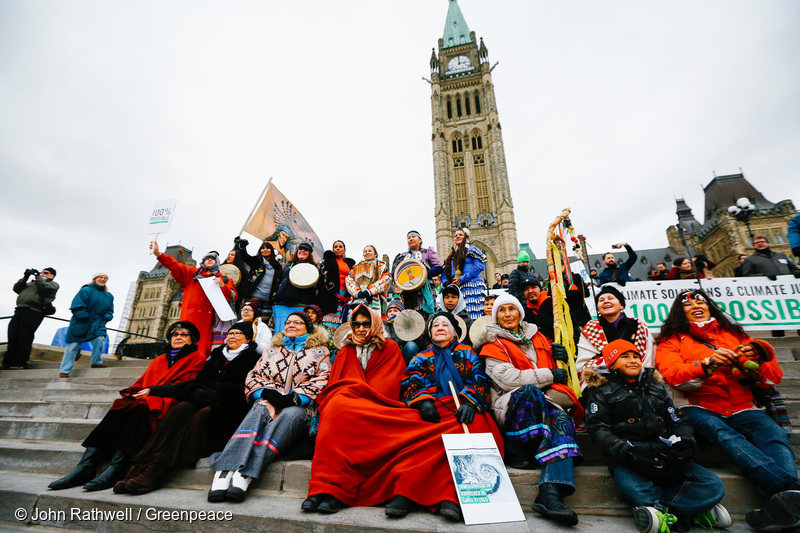
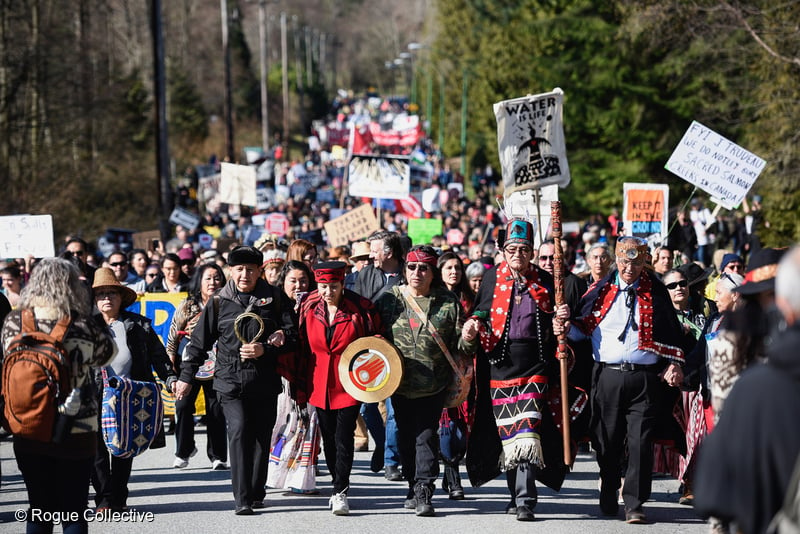
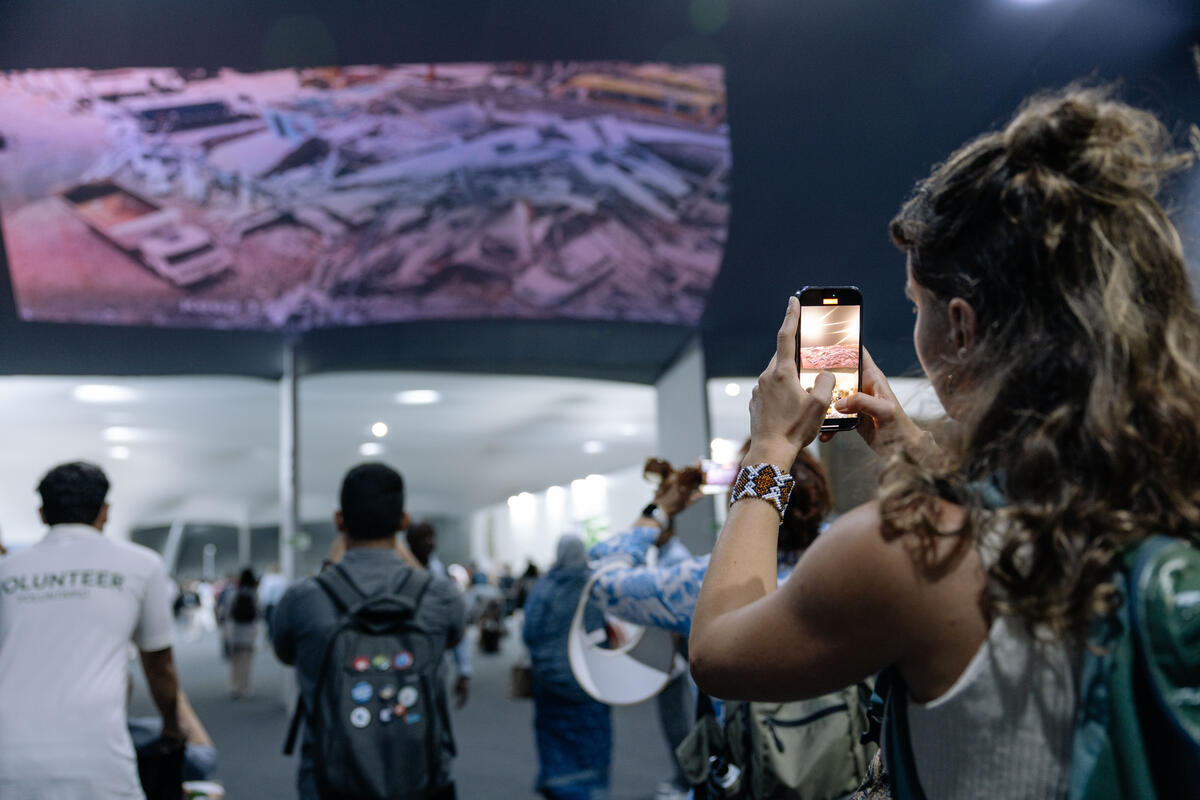
Discussion
“It’s harder to rally people around a threat to humanity than one that endangers their own backyard.” I spotted this profound yet disturbing truism, albeit perhaps logically Darwinian, in an essay (titled “Crossing Lines”) in the July/August issue of The Walrus. Especially with so much of the planet literally as well as emotionally on fire, it highlights for me the apparently prevailing penny-wise-pound-foolish widespread human mentality when it comes to the serious man-made pollution, though immediately free from our societal view, that’s toxifying our life-sustaining natural environment and worsening an already dire global warming reality. Perhaps it helps explain the increase in per capita automobile ownership (including SUVs) in Canada last year, compared to 2016, especially in B.C.; it’s something that UBC’s Sauder School of Business economist Werner Antweiler describes as “a disconcerting picture”, considering serious global greenhouse gas concerns. “The number of vehicles has grown faster than the number of people in the country.” I often wonder whether that unfortunate aspect of our general nature that permits us our tunnel vision regarding environmental degradation, will be our eventual undoing? Maybe due to (Spaceship) Earth’s large size, there seems to be a general oblivious mentality as though even the largest contamination event can somehow be safely absorbed into the environment—air, sea, and land. For example, it’s largely believed that when released into gritty B.C. coastal waters, diluted bitumen (dilbit) will likely sink to the bottom, as with the 2010 Michigan spill in which dilbit is still being scraped off of the Kalamazoo River floor. I wonder, could that sinking characteristic perhaps appeal to some people who are usually apathetic towards the natural environment deep below the water surface: i.e. it will no longer be an eyesore after it sinks—i.e. out of sight, out of mind? Indeed, it’s safe to assume that, had the (central B.C., August 4, 2014) Mount Polley copper and gold mine massive tailings pond release of a slurry of years’ worth of waste into Polley Lake—yet for which there were no B.C.-environmental-law charges laid against Imperial Metals regardless of its clear recklessness—been located in plain sight just off of, say, Vancouver’s scenic attraction Stanley Park instead of in a region of natural wilderness, it would not have received the relatively minute mainstream news-media coverage it has to date. Apparently it’s the nature of our beast; although, just because some human behaviour is common or ‘normal’, doesn’t necessarily make it moral or ethical. It may be the same mentality that allows the immense amount of plastic waste, such as disposable straws, to eventually find its way into our life-filled oceans, where there are few, if any, caring souls to see it. Indeed, it’s quite fortunate that the plastic waste doesn’t entirely sink out of sight to the bottom, like dilbit, for then nothing may be done about it, regardless of divers’ reports of the awful existence of such plastic tangled messes. Could it be the same mentality that, when randomly asked by a Global News TV reporter (a few months back) what he thought of government restrictions on disposable plastic straws, compelled a young male Vancouverite wearing sunglasses to retort, “It’s like we’re living in a nanny state, always telling me what I can’t do.” Astonished by his utter shortsightedness, I wondered whether he’d be the same sort of individual who’d likely have a sufficiently grand sense of entitlement—i.e. “Don’t tell me what I can’t waste or do, dude!”—to permit himself to now deliberately dump a whole box of unused straws into the Georgia Strait, just to stick it to the authorities who’d dare tell him that enough is enough with our gratuitous massive dumps of plastics into our oceans (which are of course unable to defend themselves against such guys seemingly asserting self-granted sovereignty over the natural environment), so he could figuratively middle-finger any new government rules with a closing, ‘There! How d’ya like that, pal?!” And, of course, the condition is allowed to fester via a mainstream news-media, being socially liberal and/or economically libertarian, that seems to not have a problem with such childish oh-well perspectives; the same narrow-mindedness that often makes me question whether we really have plausible hope in turning around our recklessness in time? After all, why worry about such things immediately unseen, regardless of their most immense importance, especially when there are various undesirable politicians and significant social issues over which to dispute—distractions our mainstream media seem only too willing to provide us? Besides, what back and brain busting, home-mortgaged labourer sustains the energy to worry about such things immediately unseen, regardless of their most immense importance? I see it somewhat analogous to a cafeteria lineup consisting of diversely societally represented people, all adamantly arguing over which identifiable traditionally marginalized person should be at the front and, conversely, at the back of the line; and, furthermore, to whom amongst them should go the last piece of quality pie—all the while the interstellar spaceship on which they’re all permanently confined is burning and toxifying at locations rarely investigated. As a species, we really can be so heavily preoccupied with our own individual admittedly overwhelming little worlds, that we’ll miss the biggest of pictures.
There should be a ban on clear-cutting in the entire country but especially in B C and Alberta. because . they have lost enough trees due to forest fires, and tar-sands clear cutting. Give the forest a chance to regrow.. Let the earth recover from all the "fracking". When the ground is no longer cracked and brown. When the Federal Government cracks down on all these companies that are stealing our water, then selling it back to us at enormous profit.. The Federal Government should pass laws to protect our Environment. That's what they are elected for.